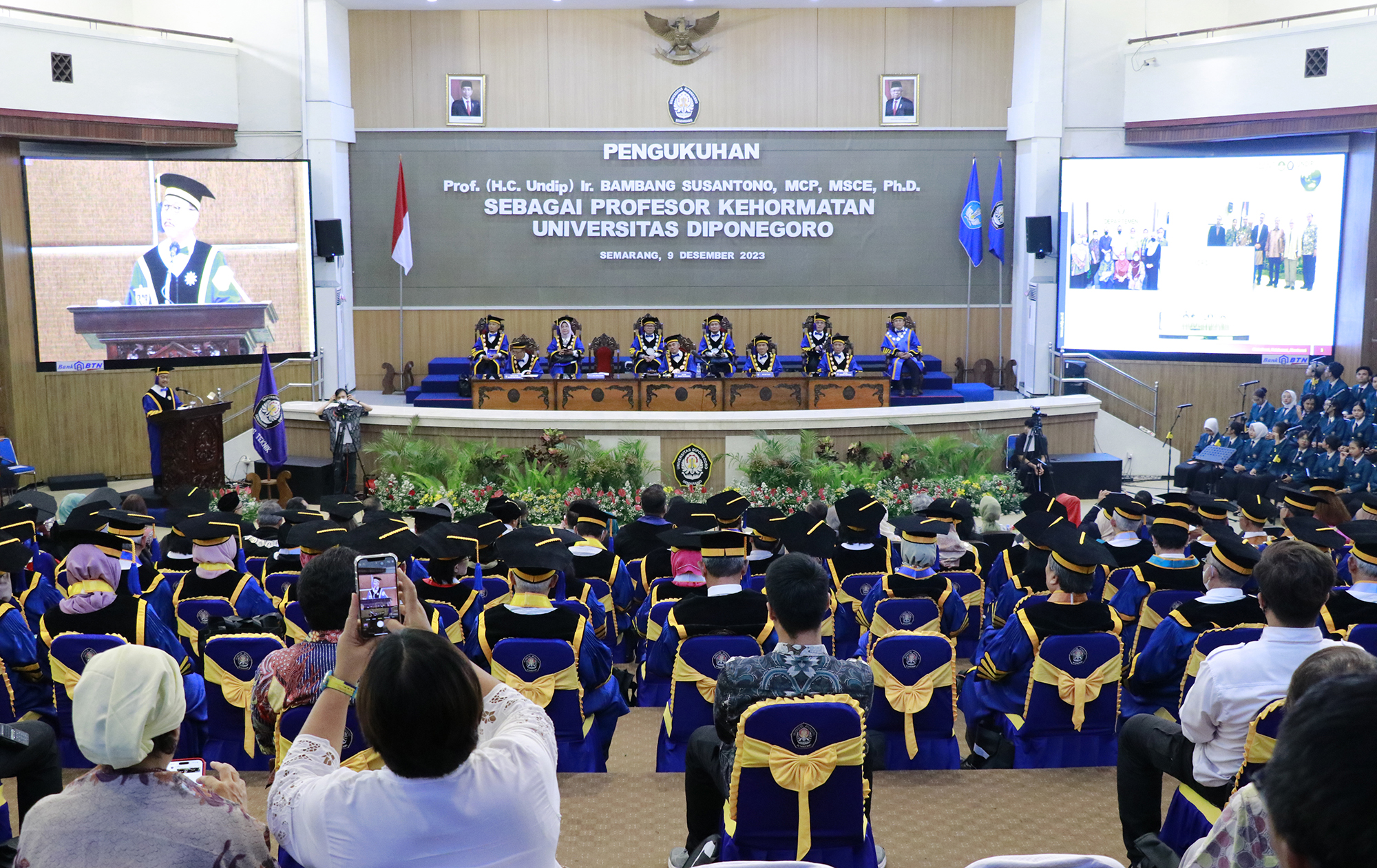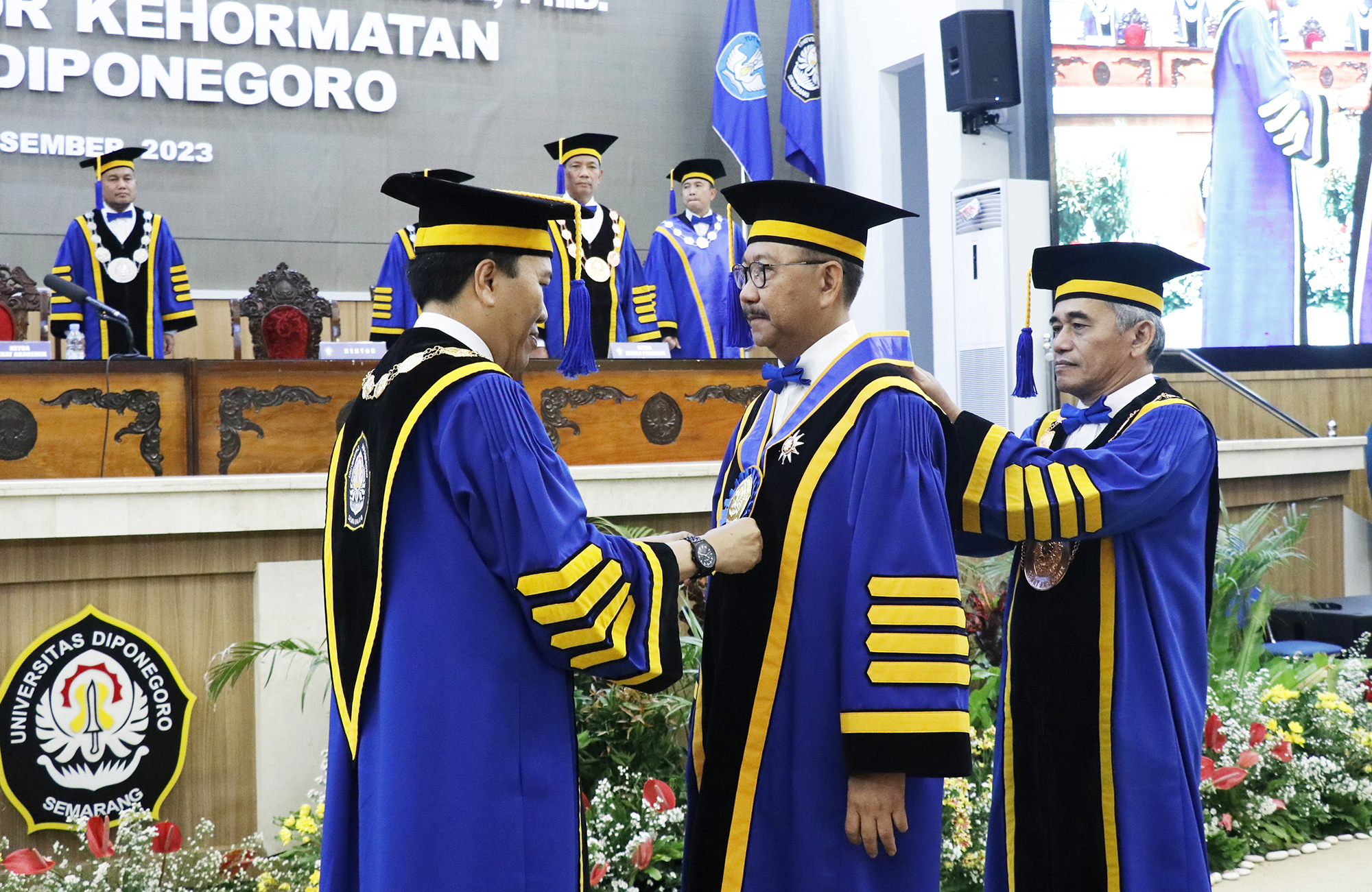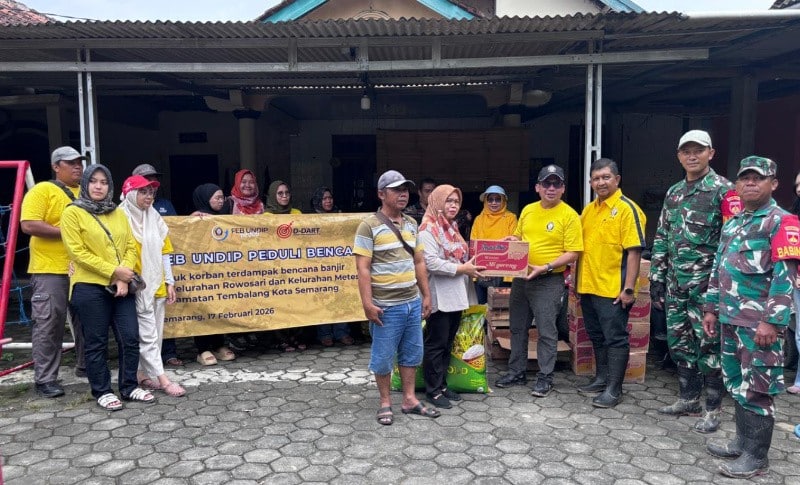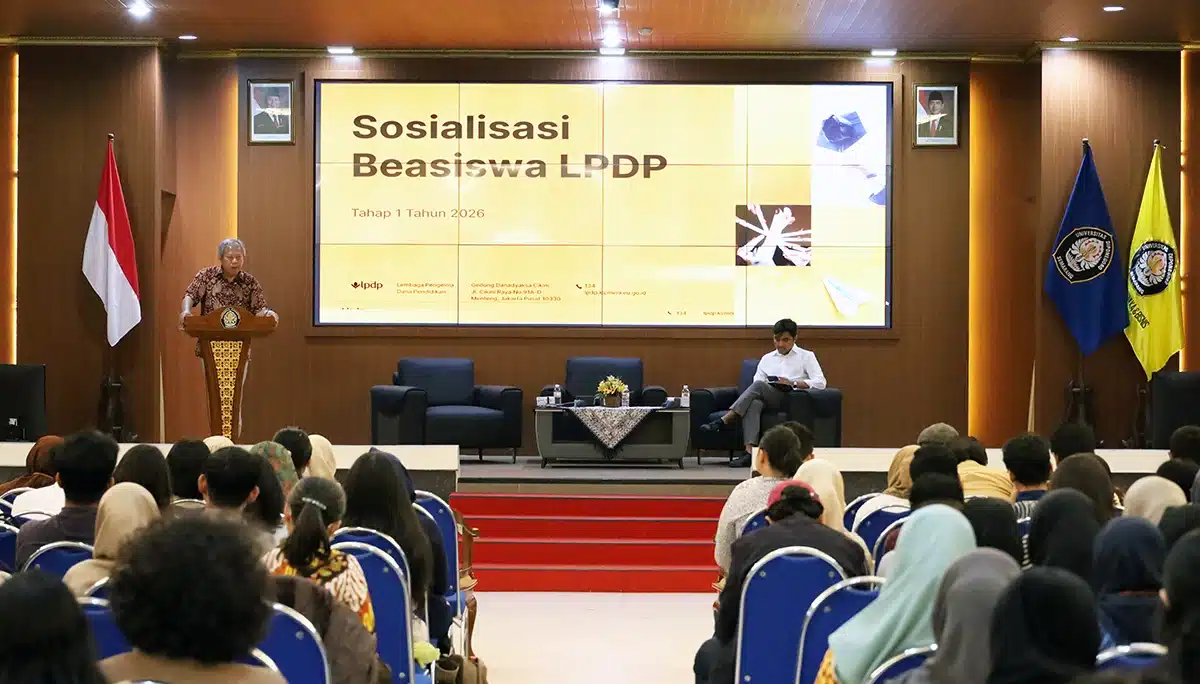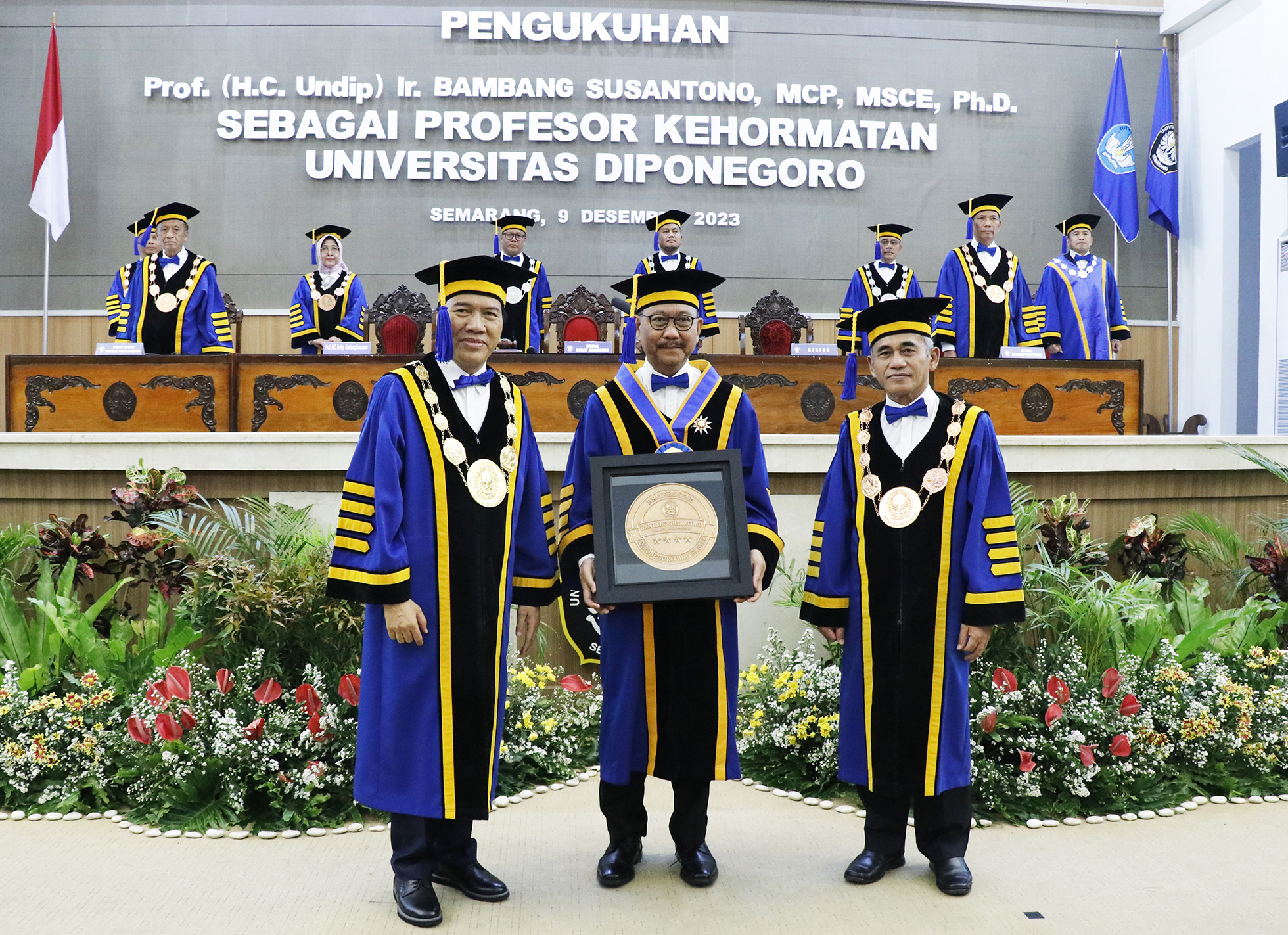SEMARANG – Head of the Nusantara Capital Authority (Ibu Kota Negara/IKN) Bambang Susantono received the title of Honorary Professor (Honoris Causa) in the field of Livable and Sustainable Cities from Diponegoro University (UNDIP), at the Prof. Soedarto, S.H., Building, UNDIP, Semarang, Saturday (9/12/2023). “Bambang, in his scientific speech, called for the concept of sustainable cities to create livable cities as one of the right strategies for city development in Asia.”
According to Bambang, livability can be defined generally as the quality of life and prosperity that is supported by a strong government system, fair access to efficient urban services, and quality infrastructure. “The idea of a livable city places society and community welfare at the center of urban development and decision-making,” said Bambang.
The awarding of the Honoris Causa title to Bambang Susantono was carried out by the Rector of Diponegoro University, Prof. Dr. Yos Johan Utama, S.H., M.Hum. based on the Decree of the Rector of Diponegoro University Number: 145/UN7.A/HK/XII/2023 concerning the Appointment of Ir. Bambang Susantono, MCP., MSCE, Ph.D., is an Honorary Professor/ Honoris Causa at Diponegoro University because he has extraordinary competence and achievements in the field of Livable and Sustainable City Expertise.
Furthermore, in his scientific oration entitled “Future Cities in Indonesia and Asia: Developing Livable and Sustainable Cities,” Bambang explained that the future of Asia is urban. Asian cities are multiplying, driven by economic and social opportunities. However, this rapid urban growth also creates challenges and problems, such as increasing economic inequality, reduced social cohesion, environmental degradation and increased risk of disasters.
In addition, the COVID-19 pandemic poses new challenges for cities in Asia. The pandemic has also exposed two critical challenges regarding urban form, density and social protection.
Therefore, according to Bambang, consistent implementation of policies is needed to achieve mobility that is safer, environmentally friendly and accessible to all levels of society.
Under these conditions, Bambang offered thoughts about a future city that is livable and sustainable. “I offer a ‘5D Approach’ that can be considered to re-examine urban conditions,” said Bambang.
The “5D Approach” consists of five “Ds,” namely Design, Density, Diversity, Digitalization and Decarbonization. First, spatial design needs to be reviewed to make it more decentralized and better able to deal with various shocks, including economic, financial, health and climate change. Second, experience during the COVID-19 pandemic shows that density can bring losses as well as benefits.
“The pandemic has proven to spread quickly in densely populated areas. At the same time, dense areas support economic turnaround during regional quarantine,” Bambang explained.
Third, regarding diversity, the pandemic has brought awareness to the importance of easy access to essential services for all city residents without exception, including informal workers and vulnerable groups such as women, people with disabilities, older people and children. Fourth, digital life is inevitable as a form of the new normal.
“Digitalization opens up opportunities for micro and small businesses, encourages humanistic automation, and provides alternative methods for people to consume goods and services,” he explained. Furthermore, digital life has had a real impact on aspects of education, health and employment.
Fourth, Bambang emphasized the issue of decarbonization. Climate change and the various problems it causes have and will significantly influence city development and management. “Therefore, low-carbon urban living is vital in city development management,” he explained.
Finally, Bambang emphasized that the concept of livability is the proper basis for city development in Asia.
“This concept places communities and community welfare at the center of urban development and decision-making. To re-examine aspects of a city’s livability, the ‘5D Approach’ can be utilized and developed to achieve solutions in strengthening livable cities,” said Bambang.
According to Undip Rector, Prof. Dr. Yos Johan Utama, S.H., M.Hum., the awarding of the title of Honorary Professor is appropriate because of his contribution to the development of a livable and sustainable city that is comfortable and environmentally friendly.
Prof. Yos added that Diponegoro University was named The 2nd Most Sustainable University in Indonesia by the UI Greenmetric World University Rankings for 4 consecutive years starting in 2020, 2021, 2022 and 2023.
The UI Greenmetric World University Rankings assessment is based on the level of concern for earth and climate issues, energy and water conservation, waste management, and environmentally friendly transportation. This ranking aligned with SDGs (Sustainable Development Goals).
Prof. Yos assessed that Ir. Bambang Susantono, MCP, MSCE, Ph.D. contributes to the area of expertise in livable and sustainable cities, supporting the eleventh sustainable development goal of Sustainable Cities and Communities. “He contributes to making cities and settlements inclusive, safe, resilient and sustainable,” he said.
